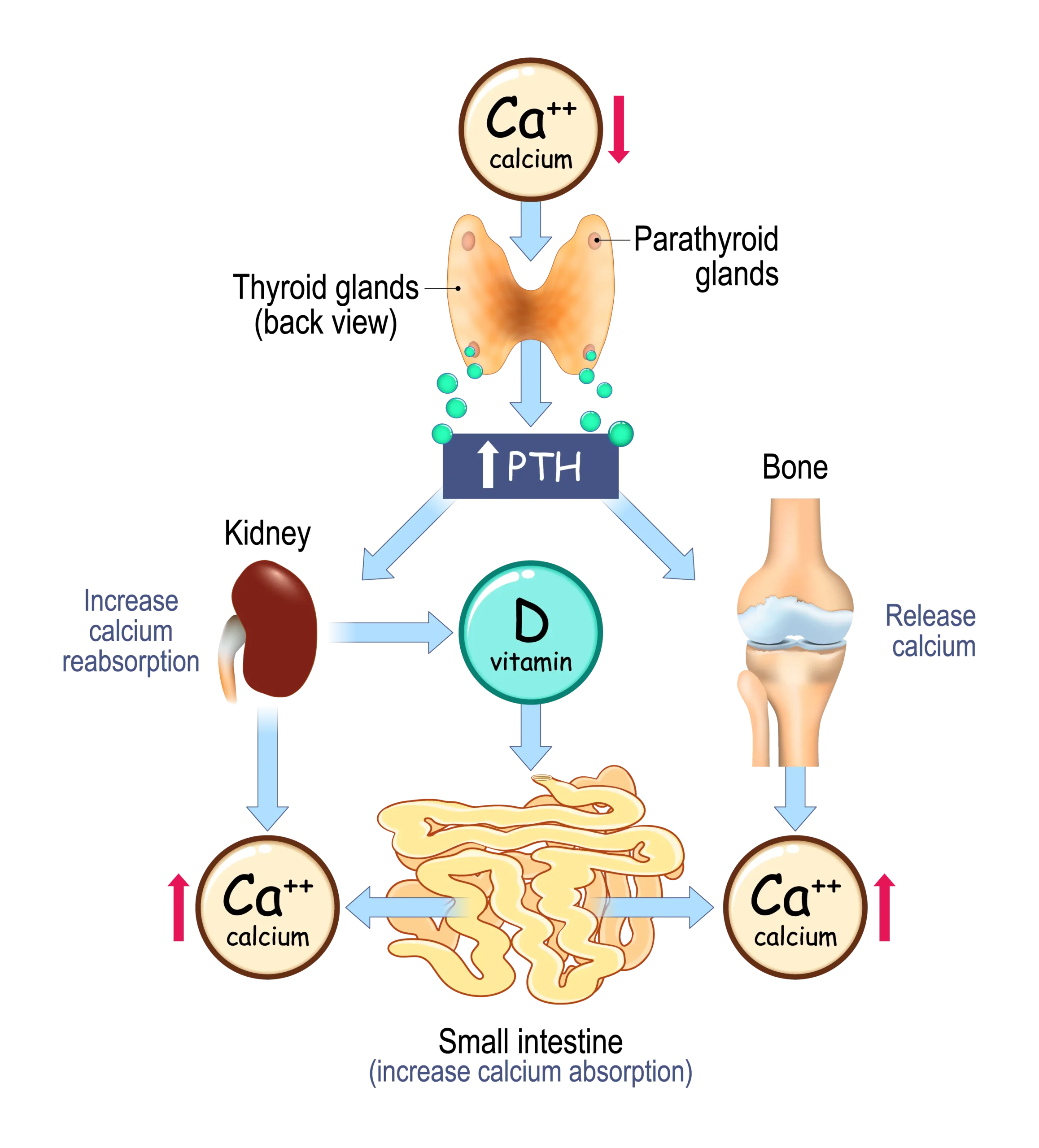While physical therapy and rest are typically key components of healing, the role of nutrition often goes underestimated. The food we consume provides the essential building blocks that can directly influence bone repair, regeneration, and overall recovery.
In this post, we’ll delve into the science behind bone healing and highlight the nutrients and foods that may help support your recovery and strengthen your skeletal system for the long term. By integrating these dietary strategies, you can actively participate in your healing process.
Key Takeaways
- Calcium intake should be adequate to support new bone formation. Dairy products, leafy greens, and fortified foods are excellent sources.
- Vitamin D is important for calcium absorption and bone mineralization. Sunlight exposure, fatty fish, and fortified foods are primary sources.
- Optimal bone healing is helped by a balanced diet rich in a variety of nutrients, not just a focus on one or two. A diverse intake of whole foods supports the complex biological processes involved in recovery.
Core Nutrients for Bone Repair
Calcium: Raw Material for New Bone
Calcium may be the most recognized mineral for bone health, and for good reason. The vast majority of the body’s calcium is stored in the bones and teeth, where it provides structural rigidity and strength. During bone healing, calcium and other minerals are continuously deposited into the site during the hard callus phase forming new bone tissue that is later remodeled into stronger bone.
Food Sources: Dairy products are famously rich in calcium, including milk, yogurt, and cheese. For those who are lactose intolerant or prefer plant-based options, excellent sources include fortified plant milks (almond, soy, oat), leafy green vegetables like kale and collard greens, broccoli, fortified cereals, and certain fish with edible bones like sardines and canned salmon. Aim for a consistent intake of calcium-rich foods throughout the day to ensure a steady supply for your healing bones.

Vitamin D: Calcium’s Partner
While calcium provides the raw material for bone, Vitamin D acts as a facilitator, ensuring that this calcium is properly absorbed and utilized by the body. Without adequate Vitamin D, even a calcium-rich diet may not be enough to support optimal bone healing. Vitamin D plays a role in regulating calcium and phosphate levels in the body, promoting their absorption from the gut and facilitating their incorporation into bone tissue.
Food Sources: A significant source of Vitamin D is exposure to sunlight, as the skin typically synthesizes Vitamin D. However, dietary sources may also be important, especially in regions with limited sunlight or for individuals with restricted sun exposure. Fatty fish like salmon, mackerel, tuna, and sardines are among the best natural food sources. Fortified foods, such as milk, plant-based milk alternatives, cereals, and some yogurts, also contribute to Vitamin D intake.
Protein: Supplies the Collagen Scaffold
Beyond minerals, protein is an important macronutrient for bone healing. Collagen makes up the majority of the organic component of bone. This fibrous protein provides flexibility and tensile strength to bone, allowing it to withstand stress and resist fracture. During the healing process, the body ramps up collagen production to form a soft callus, which is gradually mineralized to become hard bone.
Food Sources: Excellent sources of high-quality protein include lean meats (chicken, turkey, beef), fish (salmon, tuna, cod), eggs, dairy products (milk, yogurt, cheese), and legumes (beans, lentils, chickpeas). Plant-based protein sources such as tofu, tempeh, quinoa, nuts, and seeds are also valuable. It can be helpful to distribute protein intake throughout the day to ensure a continuous supply of amino acids for tissue repair.
Vitamin C: Required to Make Collagen
Vitamin C is a powerful antioxidant and a key nutrient for bone healing, primarily due to its role in collagen synthesis. As mentioned, collagen forms the organic matrix of bone, providing its initial structure and flexibility before mineralization. Without adequate Vitamin C, the body cannot produce stable collagen.
Food Sources: Vitamin C is found in a wide variety of fruits and vegetables. Excellent sources include citrus fruits (oranges, grapefruits, lemons), berries (strawberries, blueberries, raspberries), kiwi, bell peppers (especially red and yellow), broccoli, brussels sprouts, and tomatoes. Incorporating a colorful array of these foods into your daily diet will ensure a steady supply of Vitamin C to support collagen formation and overall healing.
Magnesium: Supports Mineralization
Magnesium is another mineral that plays a role in bone health and healing. It contributes to the structural integrity of the bone matrix. Magnesium is involved in over 300 enzymatic reactions in the body, many of which are directly or indirectly related to bone metabolism. Its presence supports the proper functioning of Vitamin D and calcium.
Food Sources: Rich sources of magnesium include leafy green vegetables (spinach, kale), nuts (almonds, cashews), seeds (pumpkin, chia), legumes (black beans, lentils), whole grains (brown rice, oats), and dark chocolate. Avocados and bananas also provide a good amount of magnesium.
Phosphorus: A Component of the Bone Matrix
Phosphorus is an integral component of hydroxyapatite crystals, which give bone its hardness and rigidity. Along with calcium, phosphorus is fundamental to the mineralization process that strengthens new bone tissue during healing. Its role extends beyond structural support, as it is also used for energy metabolism, cell signaling, and maintaining acid-base balance in the body.
Food Sources: Phosphorus is widely available in many foods. Excellent sources include protein-rich foods such as meat, poultry, fish, eggs, and dairy products. Legumes, nuts, seeds, and whole grains also provide significant amounts of phosphorus.
Zinc: Involved in Tissue Repair
Zinc is a trace mineral that is involved in numerous enzymatic reactions throughout the body, many of which are directly relevant to bone metabolism, cell growth, and tissue repair. Zinc supports the synthesis of collagen and other bone proteins, and it contributes to the dynamic balance of bone formation and resorption.
Food Sources: Good dietary sources of zinc include red meat (beef, lamb), poultry, shellfish (oysters are exceptionally rich in zinc), legumes (chickpeas, lentils, beans), nuts (cashews, almonds), seeds (pumpkin, sesame), and whole grains. Dairy products and eggs also contain zinc.
Vitamin K: Activates Bone Proteins
Vitamin K supports activation of proteins involved in bone mineralization, with emerging evidence suggesting other potential benefits for bone healing.
Food Sources: Vitamin K comes in two main forms: K1 (phylloquinone) and K2 (menaquinone). Vitamin K1 is abundant in leafy green vegetables such as kale, spinach, collard greens, and broccoli. Vitamin K2 is found in fermented foods like natto (a traditional Japanese soybean dish), certain cheeses, and egg yolks, as well as in some animal products like liver.
B Vitamins: Supporting Metabolic Pathways
While not as directly involved in bone structure as calcium or protein, several B vitamins play supporting roles in bone health and healing by influencing various metabolic pathways. Specifically, Vitamins B6, B9 (folate), and B12 are important for maintaining bone integrity and supporting the healing process.
Food Sources: Vitamin B6 can be found in poultry, fish, potatoes, bananas, and fortified cereals. Folate (B9) is abundant in leafy green vegetables (spinach, kale), legumes (lentils, chickpeas), asparagus, and fortified grains. Vitamin B12 is primarily found in animal products such as meat, fish, poultry, eggs, and dairy. Vegetarians and vegans may need to consider fortified foods or supplements to ensure adequate B12 intake. A balanced diet rich in whole grains, lean proteins, and plenty of fruits and vegetables will generally provide sufficient amounts of these important B vitamins to support bone health and healing.
Other Trace Minerals: Manganese, Copper, Silicon, and Boron
While calcium, phosphorus, and magnesium are the major players, several other trace minerals may contribute to bone health and the complex process of healing. Manganese, copper, silicon, and boron, though required in smaller amounts, support various enzymatic reactions and structural components that contribute to bone formation and maintenance.
Summary
Bone healing is a complex and dynamic biological process that often calls for nutritional support. By understanding the specific nutrients your bones need, from the foundational calcium and Vitamin D to the structural protein and the catalytic Vitamin C, along with a host of essential trace minerals, you can actively empower your body’s ability to heal.
Embracing a diet rich in whole, unprocessed foods, including plenty of fruits, vegetables, lean proteins, and healthy fats, typically provides the blend of nutrients required for bone regeneration. Remember that healing is not just about repairing the fracture; it’s about rebuilding stronger, more resilient bone for the future. By making informed dietary choices, you can invest in your long-term skeletal health.
Frequently Asked Questions
How long should I focus on a bone-healing diet after a fracture?
The bone healing process can take several weeks to several months, depending on the severity and location of the fracture, as well as individual factors like age and overall health. It’s beneficial to maintain a nutrient-rich diet throughout the entire healing period and even beyond. Consider consulting with an experienced orthopedic surgeon for personalized guidance based on your specific recovery timeline.
Are there any foods I should avoid during bone healing?
Certain foods and substances can potentially hinder bone healing. Excessive intake of alcohol, caffeine, and highly processed foods high in sugar, unhealthy fats, and sodium can contribute to inflammation. Smoking may also be detrimental to bone healing.
Is it possible to get all the necessary nutrients from a vegetarian or vegan diet?
Yes, it is possible with careful planning to obtain all the necessary nutrients for bone healing on a well-planned vegetarian or vegan diet. Plant-based sources of calcium (fortified plant milks, leafy greens, tofu), protein (legumes, nuts, seeds, tempeh), and other minerals are abundant. However, individuals following these diets should pay particular attention to Vitamin D and Vitamin B12, as these are primarily found in animal products.
Is hydration important for bone healing?
Yes, hydration supports all bodily functions, including bone healing. Water helps transport nutrients to the cells, remove waste products, and maintain the fluid balance necessary for metabolic processes. Adequate hydration supports overall health and helps create an optimal environment for recovery.





